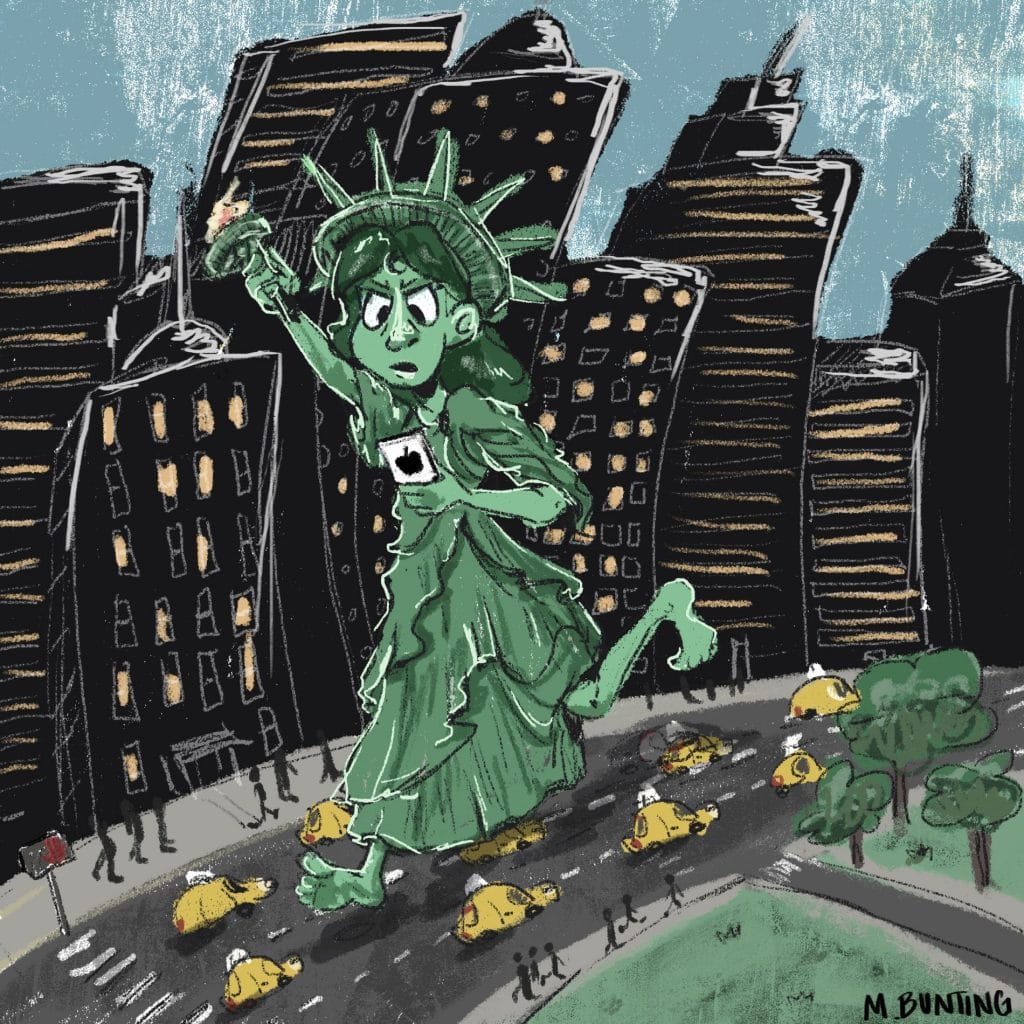Discontent Society

Illustration by Mckenzie Bunting
It is hard to reflect on North American society without being exposed to another way of life. Even when comparing North American society to that of a developing world’s, it can be surprising to see how one life style may be better or worse than the other.
In July I traveled to the beautiful country of Belize with a group of VCU students to host a summer camp for the Belizean youth. In my own ignorance, I had anticipated meeting a town of sad and impoverished people — I was greeted with exactly the opposite. The individuals I met in Belize were the happiest people I had interacted with all summer, and while they didn’t have the busy fast paced lives that we have in America, they were content.

Throughout my trip that sense of contentment was the most foreign to me. Their lives were simple — some worked as tour guides and only have work 4 months of out of the year and some made a living off of selling baked goods to supermarkets. I met college graduates who felt no pressure to be working and I met store owners who were completely content with the success of their business. That is not to say the Belizean people don’t work hard — they do, they just have a different lifestyle that rejects the stresses and anxieties that come with the fast paced North American way of life.
The tone of U.S. society has created an overwhelming sense of discontent because it has resulted in the mentality that we can always be doing more. Whether it be going to work, going out with friends or going to the gym, we are always doing something. According to Dr. Stephanie Brown, a psychologist and the author of “Speed: Facing Our Addiction to Fast and Faster — and Overcoming Our Fear of Slowing Down,” this fast paced lifestyle has a detrimental effect on mental health and leads to a discontent society.
“Over-scheduling and double-booking have been signs of progress and belonging for two decades. You juggle 10 plates while you brag about your 90-hour week and pop your Ambien to get to sleep,” said Dr. Brown in a New York Post article she wrote about faster living.
Our lives are cluttered with responsibilities and plans and making sure every day is packed with as many activities as possible. But what we don’t make time for is ourselves. We believe that the key to being successful is staying busy, and while that often does result in financial success, it does not always result in happiness.
“In a vicious circle, the exhausting fast pace of life promotes overstimulation and overscheduling, which become chronic stressors that lead to behavioral, mood and attention disorders,” Dr. Brown wrote.
According to Dr. Brown, the constant stress caused by our fast paced society has contributed to an increase in anxiety disorders and depression. We work so hard to better ourselves and make progress that we are actually hurting ourselves. What we don’t realize is by slowing down and taking time for ourselves we would actually amplify our progress. Taking time to be alone, relax and detach from the stress of everyday life can help lead to a greater feeling of contentment and fulfillment.
Since returning from Belize I have made a conscious effort to practice mindfulness and make time for myself to be alone. Some days that means literally scheduling “me time,” but it has significantly improved my day-to-day life. Now as I begin to prepare to juggle a 17 credit semester, two jobs and the responsibility of club president, it is more important than ever that I continue to make time for myself. There is no reason to feel bad about sleeping in late or watching an extra episode on Netflix. Those little moments to yourself greatly impact our overall happiness, and that is what’s most important.
Caitlin Barbieri
Opinions Editor



